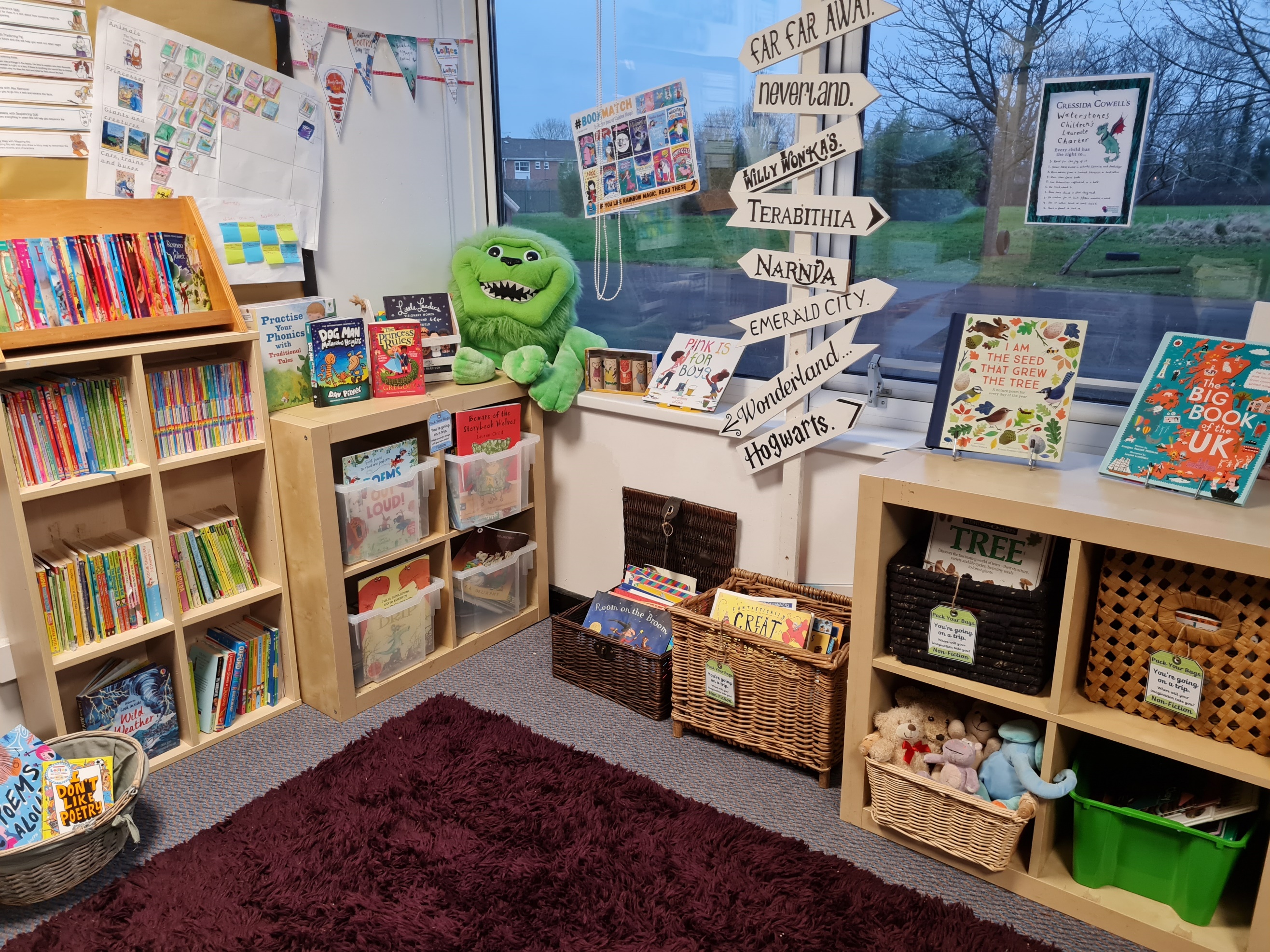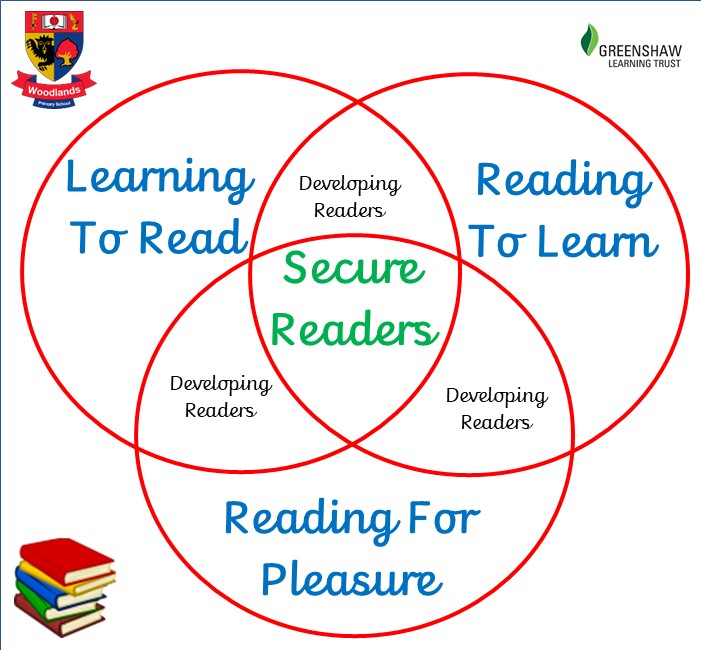Reading
Open a book - Open the world

Woodlands Theory of Reading
At Woodlands, we understand the importance of fostering a love for reading, after all it underpins everything we do, every day of our lives. Our vision is for every child within our school to leave Woodlands being able to read and enjoy reading. We develop a love of reading; a good knowledge of a range of authors, genres and text-types; and, the ability to be able to understand more about the world in which they live through the knowledge they gain from texts. These texts should encompass the best that has been thought and written.
We intend to deliver a curriculum that builds on the foundations laid within the early years and KS1 schooling to provide children with a secure phonics knowledge, the fluency of decoding and a range of comprehension skills required to understand and analyse texts. Our goal is to ensure that every child can successfully access every subject in both the primary and secondary curriculum before continuing their journey beyond to college, university and life-long learning.
We have high expectations of all of our pupils: all children are expected to meet national standards and we put in place targeted support to ensure that they do. Furthermore, we understand the importance of parents and carers in supporting their children to develop positive reading habits, decoding, fluency and comprehension skills. This can be achieved by encouraging home-school partnerships which enable parents and carers to understand how to enhance the skills being taught in school through good quality and breadth of texts.
Finally, we intend for our curriculum to represent the diversity of our pupils and the wider world through class book corners and libraries, and studied texts that represent all genders, races, religions, differing world views and that challenge stereotypes. We provide opportunities for children to read widely across both fiction and non-fiction to develop their knowledge of themselves and the world in which they live to develop and appreciation and love of reading and to gain knowledge across the curriculum.
Reading at Woodlands Primary is divided into three areas
Learning To Read
At Woodlands Primary we use Bug club, a government validated systematic synthetic phonics programme. This approach to teaching phonics begins in Nursery and is developed in every year group throughout the school. We support our phonics teaching with fully decodable fiction and non-fiction titles, linked directly to the programme and children always have access to books containing the phonemes they have recently learnt. The programme also uses videos of well-known CBeebies characters and al the books are available online, meaning children have the chose of many books, can complete quizzes and win rewards. Online reading is encouraged as our children will complete the majority of their reading online in later life. However, we also have an extensive range of books in our class libraries and children also take home a 'sharing' book each week.
When working through the programme, children are frequently assessed, both formally and informally during daily lessons to ensure children are on track. Any children not keeping up are given additional keep up strategies and interventions.
Please click on the link below to find out more about the scheme:
A range of strategies, including weekly poetry, are also taught to support the children's fluency and prosody; this in turn supports their understanding of the texts.
Reading to Learn
Through our daily reading lessons children learn a variety of skills which enable them to 'deeply' understand a text. During Million Dreams topic lessons, children are given the opportunity to apply these skills. They will be given a piece of text to read and unpick, the class will then be drawn back together and a shared PowerPoint or Jamboard will be created which the children can then use to produce work on that topic. This will also prepare children for the demands of KS3 and beyond, when text book reading is often used to 'learn' subject content form.
Reading for Pleasure
The reason that enjoyment for reading is key to The National Curriculum and The Ofsted Inspection Framework can be traced back to The Education Research Team Report for the DfE in 2012.
That report looked at research evidence on reading for pleasure and found that:
- Children who say they enjoy reading for pleasure are more likely to score well on reading assessments compared to pupils who said they enjoyed reading less.
- There is some evidence to show that reading for pleasure is a more important determinant of children’s educational success than their family’s socio-economic status. Reading for pleasure can be used as an indicator or predictor of academic success more reliably than looking at socio-economic status.
- It can have a positive impact on pupil’s emotional and social behaviour.
- It can have a positive impact on text comprehension and grammar.
So clearly there is an indication here that as a school, we need to be doing everything we can to support children and families to develop that love of reading and fostering that reading community where parents, siblings, children and teachers are all fostering that love of reading.
To support Reading for Pleasure further we have reading ambassadors across the school and participate in several events throughout the year. These include:
- World Book day
- Ready Steady Read
- Carnegie Award Shadowing
- LOL Award Shadowing
- Shakespeare Day
- Book Sales and Swaps
When all three are secure we have secure readers!

